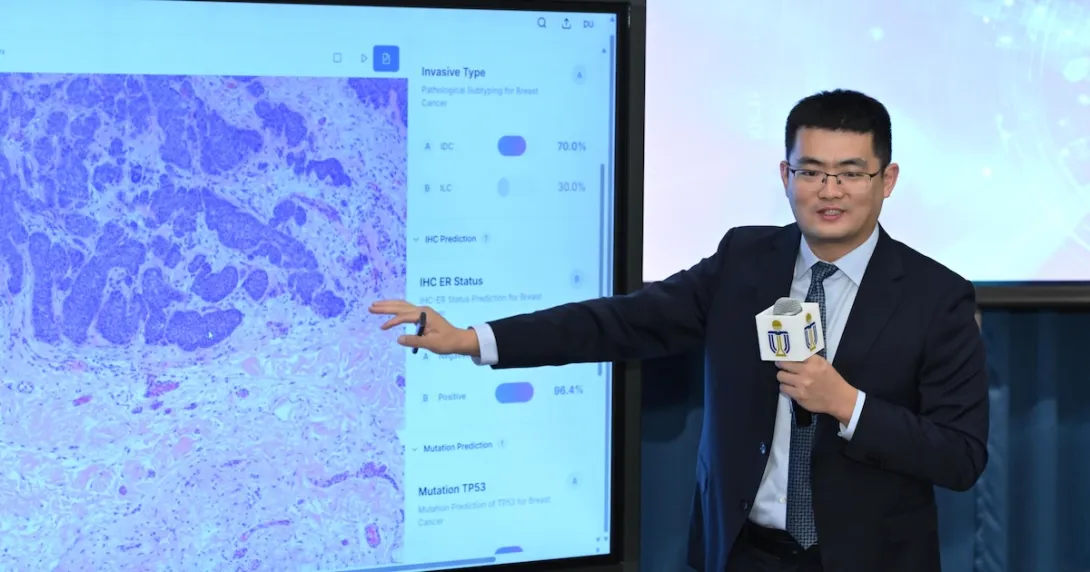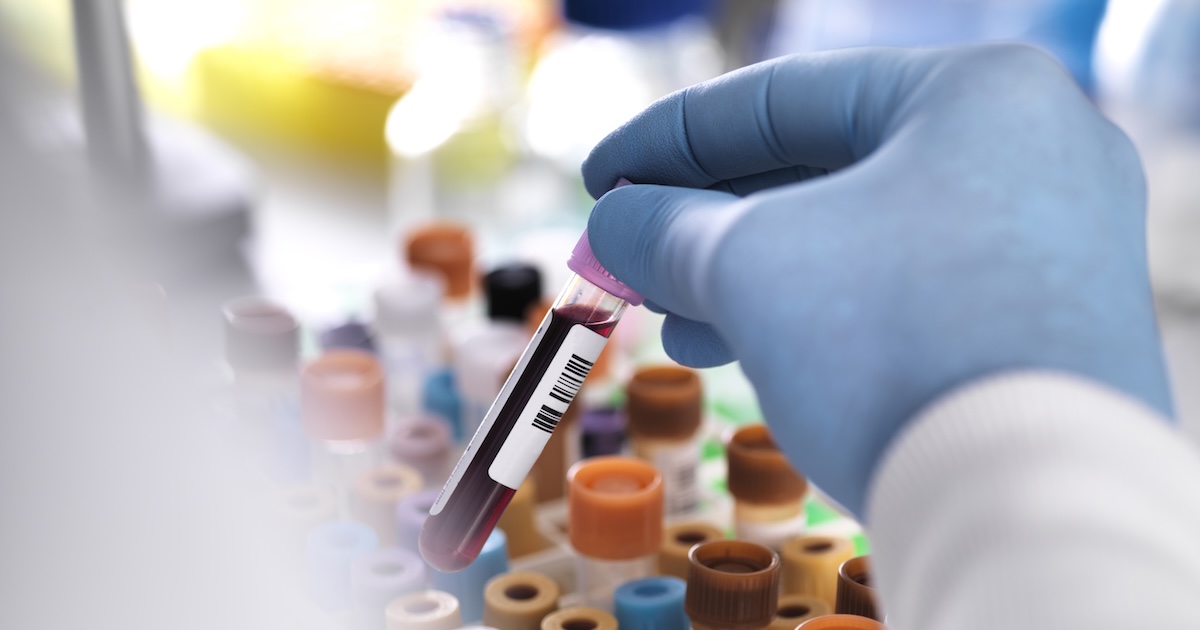
Photo courtesy of the Hong Kong University of Science and Technology
A new AI-driven pathology system that automates cancer diagnostics from slide analysis to reporting is now undergoing regulatory review in both Hong Kong and mainland China.
The Hong Kong University of Science and Technology (HKUST) has recently unveiled an AI-enabled pathology platform that automates the pathology workflow end-to-end.
The system, called SmartPath, is built on two large AI models and trained on more than 500,000 whole-slide images across at least 34 cancer types, including lung, breast, colorectal and gastric cancers – among the most common in Hong Kong.
HOW IT WORKS
SmartPath is underpinned by two large AI models: the Generalizable Pathology Foundation Model, which identifies tumours, subtypes cancers, and quantifies cancer biomarkers to predict patient survival outcomes and evaluate likely treatment response, and the Whole-slide Pathology Foundation Model, mSTAR, which combines different pathology data types to generate comprehensive, detailed pathology reports automatically and answer queries.
Its large training dataset was sourced from diverse geographic regions, including China, North America, and Europe, and covered a wide range of ages, according to Dr Chen Hao, an assistant professor at HKUST's Departments of Computer Science and Engineering and Chemical and Biological Engineering.
Dr Hao said combining this dataset with knowledge from existing models enhances the system’s generalisation capability, or its ability to maintain accuracy across new data, cancer types, and patient populations.
Based on a media release, the AI system assists with over 100 clinical tasks, including cancer classification and clinical diagnosis, subtyping, biomarker quantification, treatment response assessment, survival rate prediction, pathology report generation, and prognostic follow-up.
HKUST researchers behind SmartPath collaborated with over a dozen hospitals across Hong Kong and mainland China to validate the AI system's performance across real-world clinical tasks and diverse patient populations.
By being fed with a continuous stream of real-world data, the system also constantly refines algorithms and improves diagnostic and predictive capabilities. "This isn't a static tool; it's a continuously evolving system that grows smarter with every clinical application," Dr Hao explained.
WHY IT MATTERS
SmartPath is designed to speed up diagnostic turnaround and support more personalised cancer treatment planning.
By streamlining the pathology cycle – from rapid initial slide analysis and risk alerts to AI-assisted reporting – the system enables pathologists to focus on complex and high-priority cases, the university said.
"SmartPath has consistently ranked first in a significant majority of benchmarked tasks, demonstrating superior accuracy in critical areas like malignancy identification and treatment response prediction," claimed Dr Hao.
For example, in a recent blinded, prospective study at Nanfang Hospital in Guangzhou, the system demonstrated over 95% accuracy in diagnosing different cancer types, predicting survival rates, and generating detailed reports quickly.
"SmartPath has demonstrated a remarkable ability to improve the accuracy of malignancy identification and provide reliable prognostic predictions. The system's rapid generation of extensive preliminary reports has proven to cut down our diagnostic turnaround time significantly – a crucial factor in managing time-sensitive cancer cases," commented Professor Liang Li, director of the Department of Pathology at Nanfang Hospital.
HKUST researchers are now developing new capabilities for SmartPath to cover more cancer types, particularly rare and genetically complex malignancies.
"We are in the process of seeking the necessary regulatory approvals for SmartPath's extensive deployment. This includes engaging with relevant regulatory bodies in both mainland China and the Hong Kong SAR," Dr Hao also revealed to Mobihealth News.
"Specific submissions are underway," he added.

